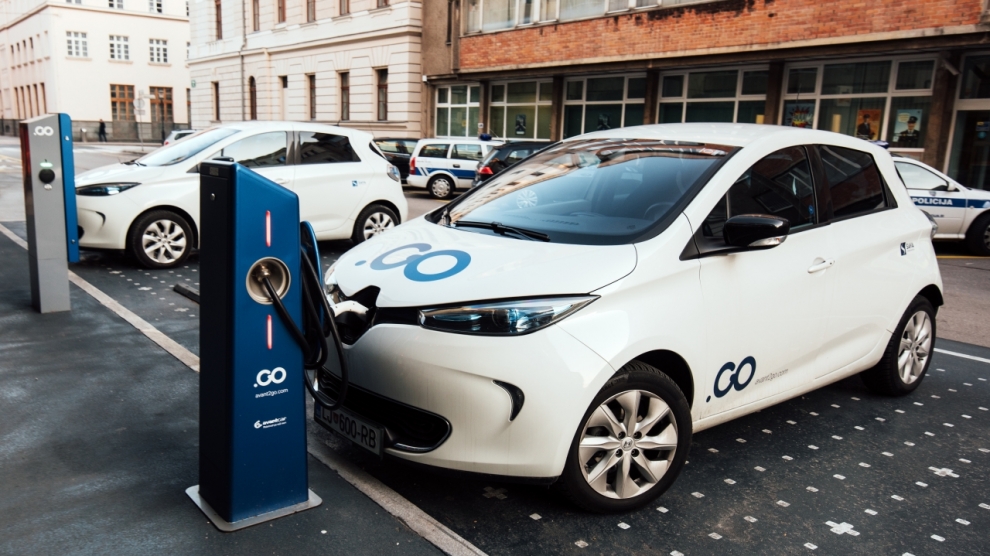The Romanian renewable energy company Renovatio and Croatia’s telecommunications services provider Hrvatski Telekom will install the first 23 fast charging stations for electric vehicles in Romania by the end of 2018. This will be the start of a project to set up a network fast and ultra-fast charging stations in both Romania and Croatia.
The project is worth a total of 4.28 million euros, 80 per cent of which will be financed by the EU. Most of the investment, 3.1 million euros, will be made in Romania, where Renovatio will install 53 fast-charging stations and three ultra-fast charging stations.
The stations are part of the pan-European transport network TEN-T, covering the Mediterranean area (Croatia), Rhine-Danube, and Orient and East-Med (Romania). According to the Association of Car Producers and Importers, Romania saw an increase of 62.4 per cent in the number of electric and hybrid cars sold in the first quarter of 2018, a total 661 vehicles.
Romania uses more renewable energy than the EU average and reached its 2020 renewables target in 2016. Its energy mix is well balanced: most of the energy it uses is derived from petroleum products (27.6 per cent) and gas (27.1 per cent), followed by solid fuels (17.9 per cent), renewables (18.1 per cent) and nuclear (9.1 per cent). In comparison to the average energy mix in the EU, Romania’s has a higher share of renewable energy and natural gas and a lower share of nuclear energy and oil. Just over 43.2 per cent of its electricity was generated from renewable sources: 27.8 per cent from hydro, 11.1 per cent from wind and 3.35 per cent from solar energy).
In Macedonia, kindergartens, schools and other public buildings in 35 municipalities are to benefit from 2 million euros in grants for the procurement of photovoltaic (PV) systems. The grants will be awarded under the EU’s Instrument for Pre-Accession Assistance (IPA) programme, stated the Macedonian Finance Ministry.
The installation of PV systems is expected to ensure significant savings on electricity bills and diversify the country’s energy mix, in line with the government’s strategic efforts to encourage the use of renewable energy sources and environmental protection.
In other solar energy news, Albania’s state-owned power utility KESH has designed a 12.9 MW floating solar power plant. It plans to build the plant on the Vau i Dejës reservoir, in the northwest of the country. No details of the cost of the proposed plant have been revealed.
Albania’s renewable energy is almost entirely dependent on hydropower plants, therefore the country is seeking to diversify its energy mix, and the Vau i Dejës reservoir is part of the hydropower plant at Vau i Dejës.
Back in May 2017, the European Bank for Reconstruction and Development (EBRD) and the Albanian Ministry of Energy and Industry signed a Memorandum of Understanding on cooperation to develop the regulatory framework for solar power and the subsequent development of solar power projects.

